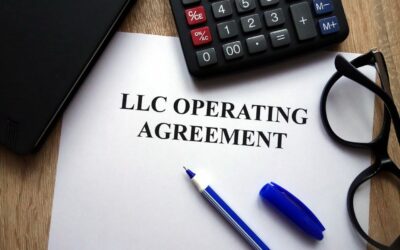Planning for the future is a crucial aspect of running a successful business. While business partners often embark on a venture with long-term intentions, unforeseen circumstances may arise, leading to the departure of one or more partners. Every business owner needs to have a well-defined plan in place for allocating or selling their stake in the business in various scenarios such as disability, death, retirement, divorce, dispute, or a simple desire to exit the business. This is where buy-sell agreements play a significant role by providing a clear framework to ensure business continuity during these uncertain times.
A buy-sell agreement is a legally binding document created by an attorney that outlines the precise division of a business’s assets, ownership, and control in the event of any of the occurrences mentioned above. Such an agreement holds particular importance for co-owners, resembling a business prenuptial agreement, by delineating the consequences and actions to be taken if the partnership ends, regardless of the reasons behind it.
A buy-sell agreement also includes provisions for triggering events, which are events that activate the terms of the agreement. Examples of triggering events can vary but may involve the death or disability of a partner, a partner’s voluntary or involuntary departure, bankruptcy, or retirement. Partners have the opportunity to define the conditions of the buy-sell agreement and specify the triggering events that would initiate the agreement.
What should be in a Buy-Sell Agreement?
A comprehensive buy-sell agreement should provide specific details regarding various aspects of the partners’ ownership interests and the events that trigger the application of the agreement. Several elements should typically be included in a buy-sell agreement:
- Each partner’s ownership interest: The agreement should clearly specify the percentage or proportion of ownership each partner holds in the business. This ensures transparency and avoids confusion regarding the distribution of profits, losses, and decision-making authority.
- Valuation of ownership interests: It is crucial to establish how the value of each partner’s ownership interest will be determined. This can involve using a specific valuation method, such as appraisals, book value, or an agreed-upon formula. Including a provision for regular valuation updates can help maintain fairness and accuracy over time.
- Notice requirements and rights of first refusal: The buy-sell agreement should outline the process and timeline for a partner wishing to sell their business interest. It may include provisions for providing written notice to other partners regarding the intention to sell. Additionally, the agreement can grant other partners the right of first refusal, allowing them the opportunity to purchase the selling partner’s interest on the same terms offered by an external buyer.
- Triggering events: The agreement should clearly define the events that activate the buy-sell agreement and its provisions. Common triggering events include the death, disability, retirement, voluntary or involuntary departure, bankruptcy, or divorce of a partner. By explicitly identifying these events, the agreement establishes a framework for the smooth transition of ownership and minimizes potential conflicts.
- Applicability of provisions: Once a triggering event occurs, the buy-sell agreement should specify the provisions that become applicable. This may include mandatory purchase obligations, restrictions on transferability, pricing mechanisms, or other relevant clauses. By addressing these provisions in advance, the agreement ensures that the partners’ rights and obligations are well-defined during transitional periods.
- Purchase terms and conditions: The agreement should provide details on the terms and conditions surrounding the purchase of an owner’s interest. This can include payment terms, such as lump sum or installment payments, financing arrangements, or the use of external funding sources. Clear guidelines on the transfer process, including required documentation and any necessary approvals, should also be outlined.
The Different Types of Buy-Sell Agreements
There are different types of buy-sell agreements, and their specific terms can vary based on the preferences of the partners and the type of business entity involved. It can be challenging navigating this alone, making it advisable for business partners to seek guidance from an experienced attorney who can explore available options and determine the most suitable type of agreement for their particular circumstances.
The three main types of buy-sell agreements, however, are cross-purchase agreements, redemption agreements, and hybrid agreements.
Cross-Purchase Agreements
In a cross-purchase agreement, the remaining owners or shareholders commit to purchasing the interest of a deceased or departed owner. Often, this agreement relies on a life insurance policy that enables the co-owners to buy out the shares in the event of death. Cross-purchase agreements are typically used in business continuation planning to ensure the uninterrupted operation of the business. The agreement outlines how the shares can be divided or purchased by the remaining partners, usually based on each partner’s stake and role in the company.
Redemption Agreements
Redemption agreements stipulate that the company itself will repurchase the shares of a departing or deceased owner. Similar to cross-purchase agreements, the company typically holds a life insurance policy for each owner and utilizes the insurance benefit to repurchase the shares from the deceased owner.
Hybrid Agreements
Hybrid agreements combine elements from both cross-purchase and redemption agreements. They require the remaining owners, as well as the business entity itself, to purchase the shares of the departed owner. This type of agreement specifies the proportions in which the remaining owners and the business will acquire the shares.
Florida Attorneys Skilled at Drafting Buy-Sell Agreements
When it comes to drafting a Buy-Sell Agreement, it is essential to seek the expertise of a knowledgeable attorney specializing in business and corporate law, preferably someone with a strong financial background. At the Campbell Law Group, we have the experience and proficiency to create customized Buy-Sell Agreements tailored to your specific requirements.
Our firm proudly serves clients throughout South Florida, including Miami Beach, Coral Gables, Coconut Grove, South Miami, Pinecrest, Brickell, Edgewater, Doral, and Wynwood. We also handle cases in Broward and Palm Beach County, as well as extending our services to Tampa, Orlando, and other locations across Florida.
Frequently Asked Questions
How is the value of the business determined in a buy-sell agreement?
The valuation of a business in a buy-sell agreement can be determined through various methods, such as appraisals, book value, or using a pre-determined formula. Typically, the agreed-upon method is outlined in the buy-sell agreement itself.
What funding mechanisms can be used to finance a buyout in Florida?
In Florida, common funding mechanisms for buyouts include cash payments, installment payments, third-party financing, or the use of life insurance policies. The specific financing method can be outlined and agreed upon within the buy-sell agreement.
Can a buy-sell agreement address the transfer of ownership to family members or key employees?
A buy-sell agreement can include provisions that address the transfer of ownership to family members or key employees. These provisions can outline the conditions, restrictions, and terms of such transfers to ensure a smooth transition of ownership.
Are there any legal requirements or regulations specific to buy-sell agreements in Florida?
While there are no specific legal requirements or regulations unique to buy-sell agreements in Florida, ensuring that the agreement complies with general contract laws and any applicable state or federal laws governing business transactions is important.
Can a buy-sell agreement include restrictions on the transfer of ownership interests?
A buy-sell agreement can include restrictions on the transfer of ownership interests. These restrictions can help maintain the stability and continuity of the business by specifying limitations on transfers to external parties or by granting existing owners rights of first refusal.
How often should a buy-sell agreement be reviewed and updated?
It is advisable to review and update a buy-sell agreement periodically or when significant changes occur within the business. It is recommended to reassess the agreement during events such as changes in ownership, financial circumstances, or the addition of new partners.
Can a buy-sell agreement be amended if circumstances change?
A buy-sell agreement can be amended if circumstances change. However, any amendments should be made with all parties’ mutual agreement and consent. It is recommended to document any amendments in writing and ensure they comply with applicable laws.
What steps should be taken to ensure a smooth implementation of a buy-sell agreement in Florida?
To ensure a smooth implementation of a buy-sell agreement in Florida, it is important to engage experienced legal professionals who specialize in business and corporate law. They can assist in drafting the agreement, conducting valuations, ensuring compliance with laws, and facilitating the necessary documentation and processes for a seamless implementation. Regular communication and periodic review of the agreement are also key to maintaining its effectiveness.







